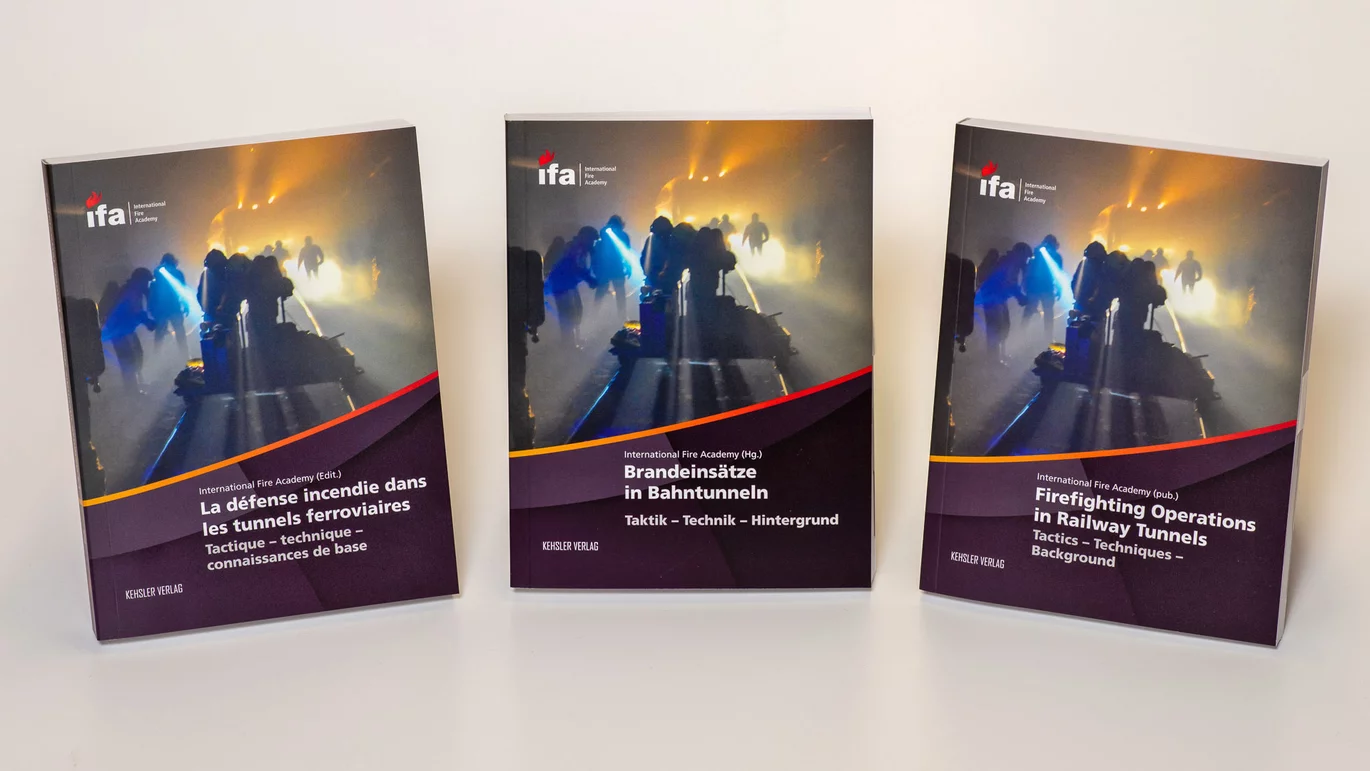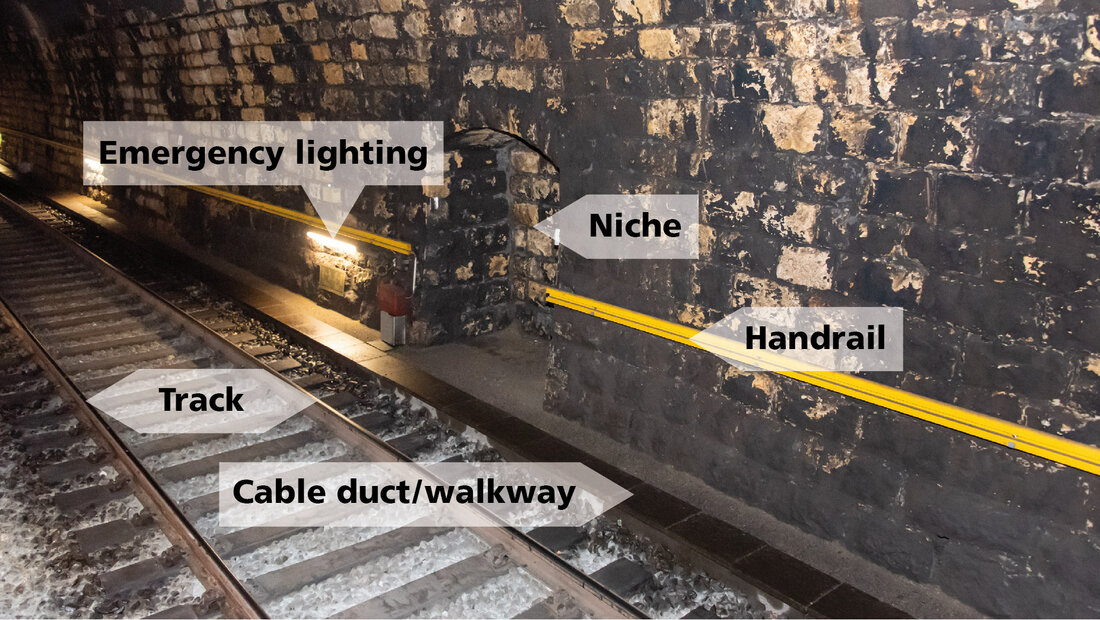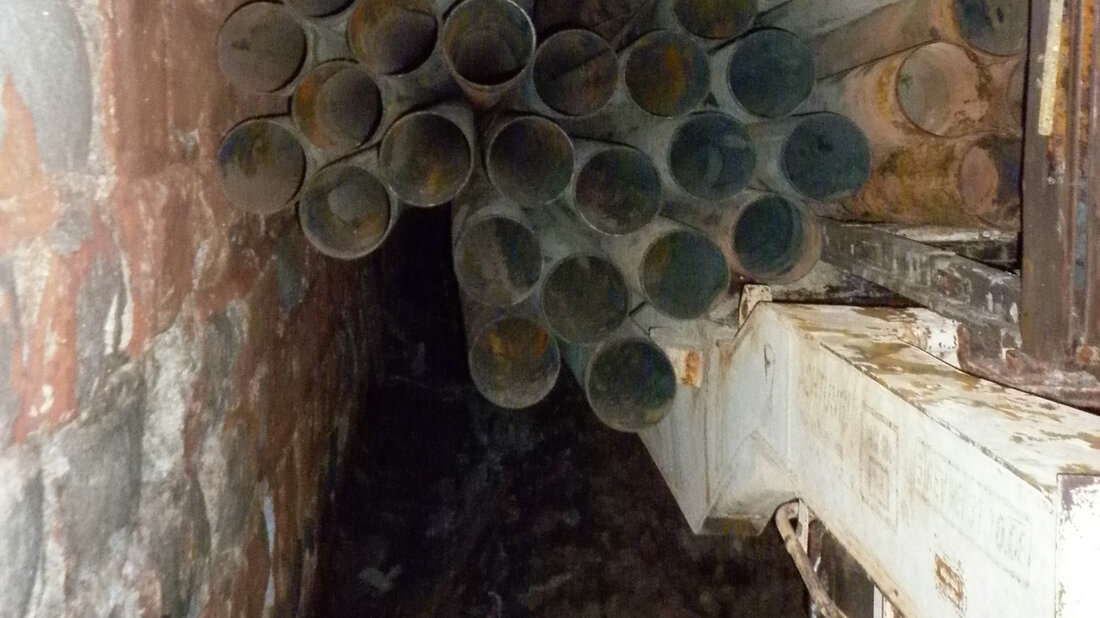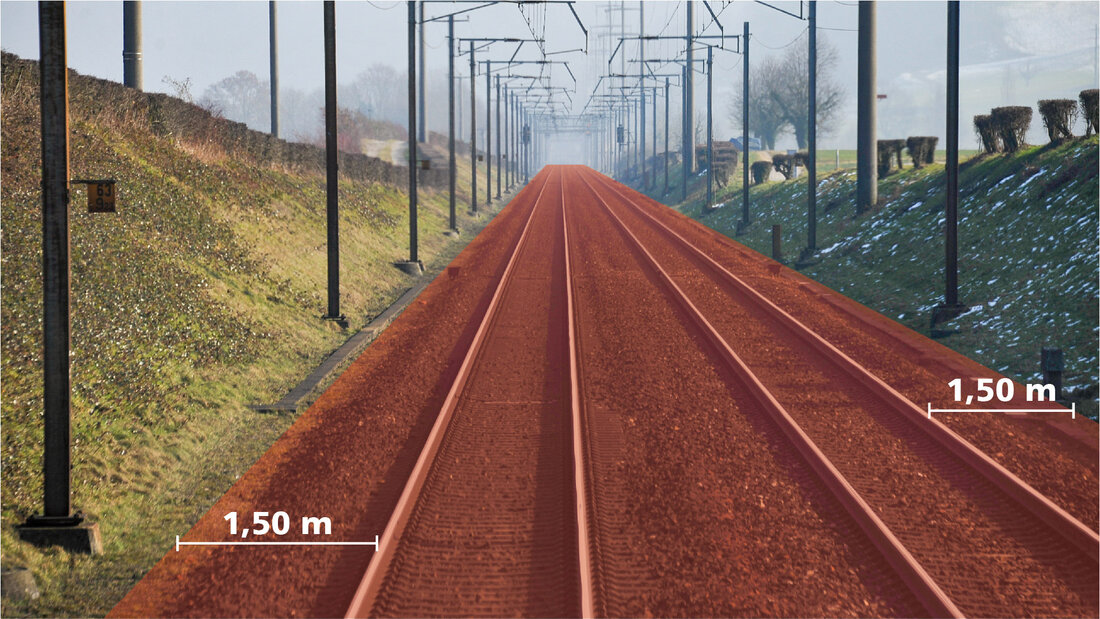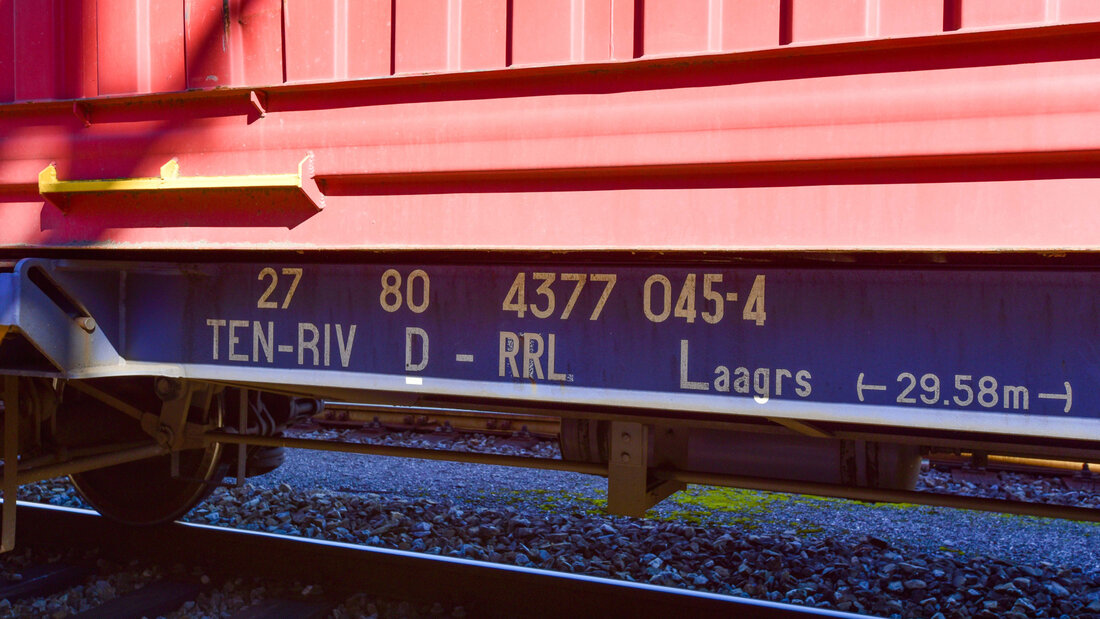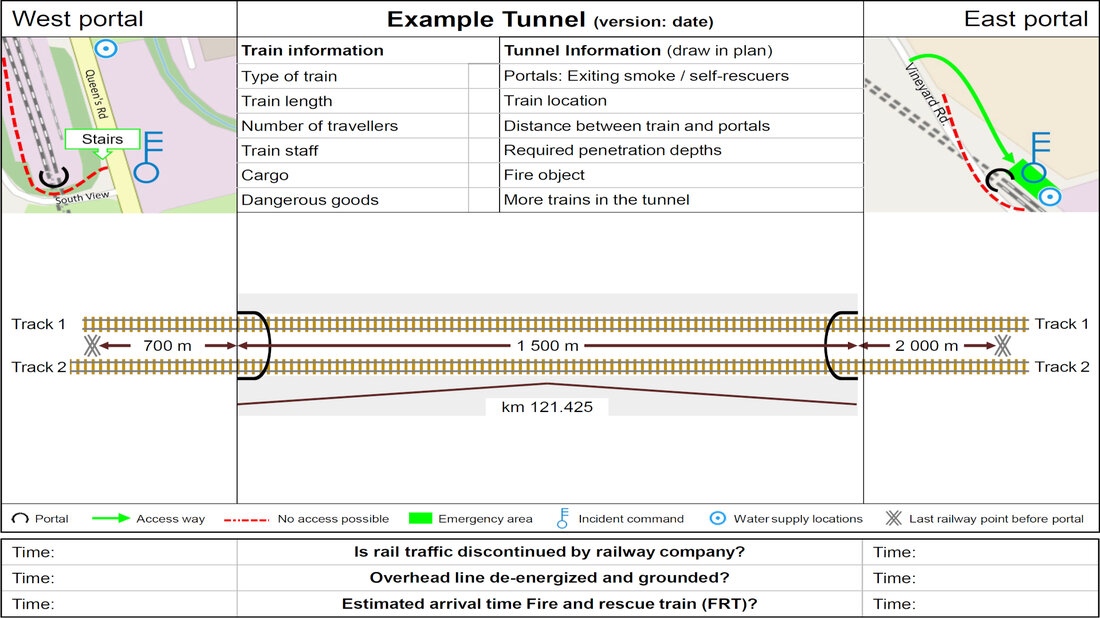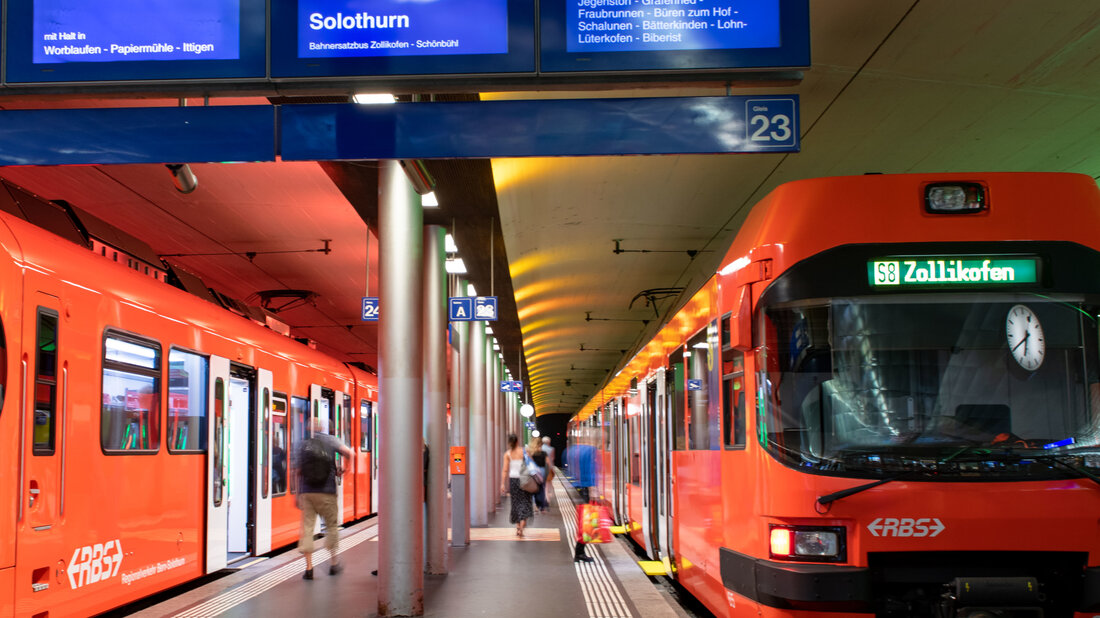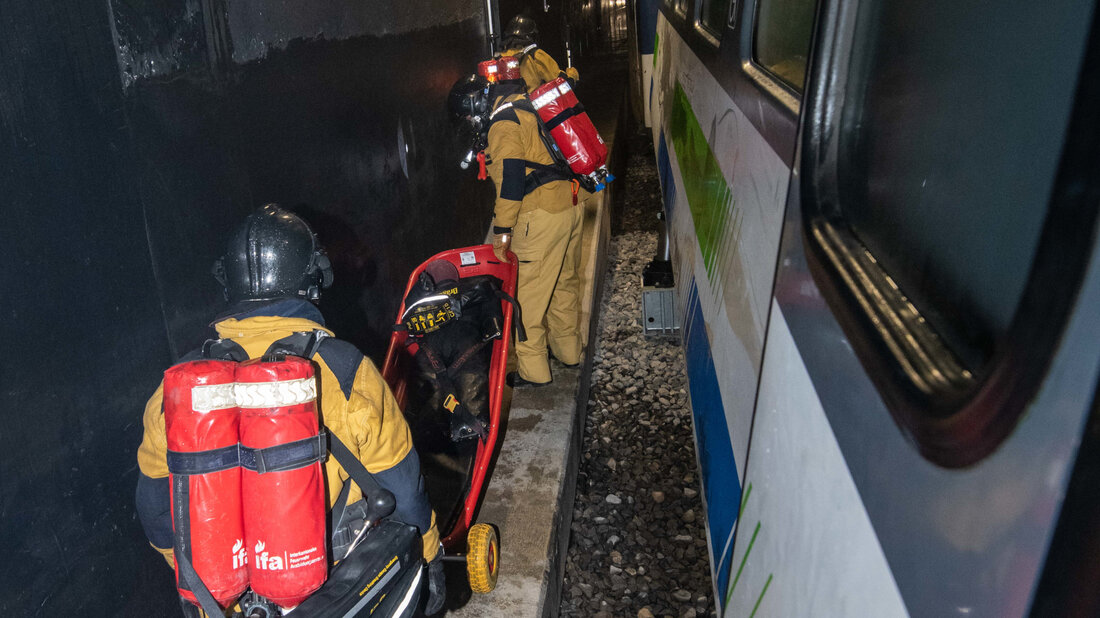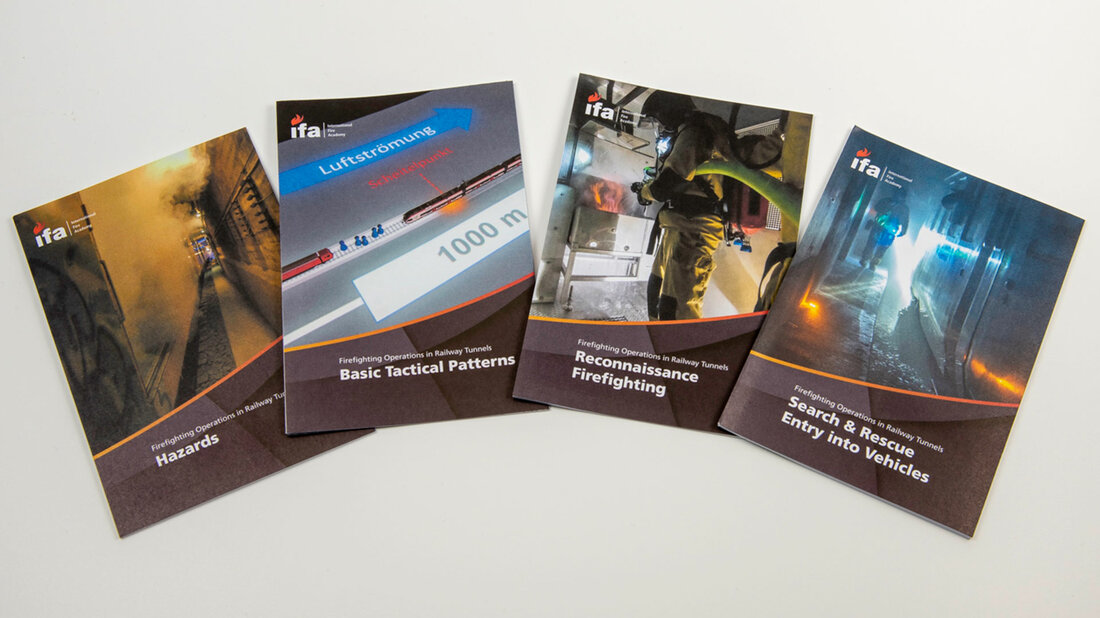From the perspective of experiential learning, learning cannot be limited to the acquisition of knowledge. The focus is instead on experiencing relevant situations and challenges. At the same time, the importance of specialised knowledge should not be underestimated when firefighters want to tackle tunnel fires jointly. The necessary basic knowledge for tunnel operations as well as helpful background information are presented compactly in words and pictures in the specialist books «Firefighting Operations in Road Tunnels» and «Firefighting Operations in Railway Tunnels». But how can they support a lasting training?
Narrowing down the required knowledge - also across «language worlds»
What additional knowledge should firefighters have for tunnel operations in the first place? This question was essential in the development of the two textbooks on tunnel firefighting procedures. The aim was to limit knowledge transfer to what is necessary. This task took up a lot of time for the Didactics and Development Team. The result is two compact textbooks, each available in three languages.
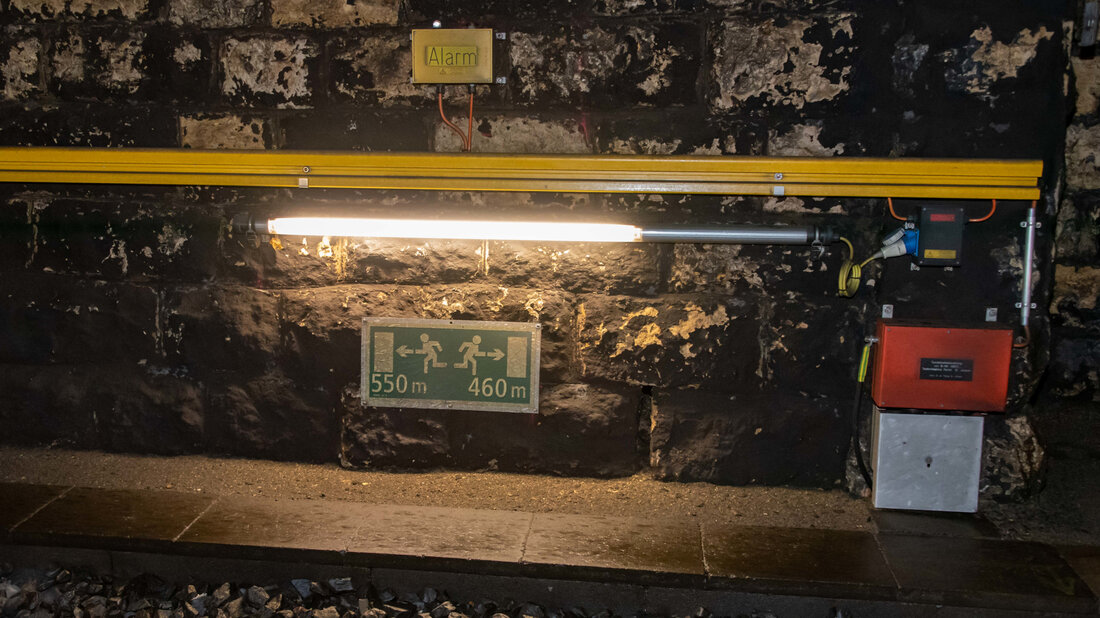
Consolidating the use of technical terms
A prerequisite for swift communication during operations is the confident use of technical terms on the part of all parties involved. Tunnels in general, especially the infrastructure and vehicles in rail transport, can only be described to a limited extent and often not with sufficient precision using everyday vocabulary. It is why it was so crucial for the International Fire Academy's Didactics and Development Team to specify technical terms and select those relevant to fire services.


